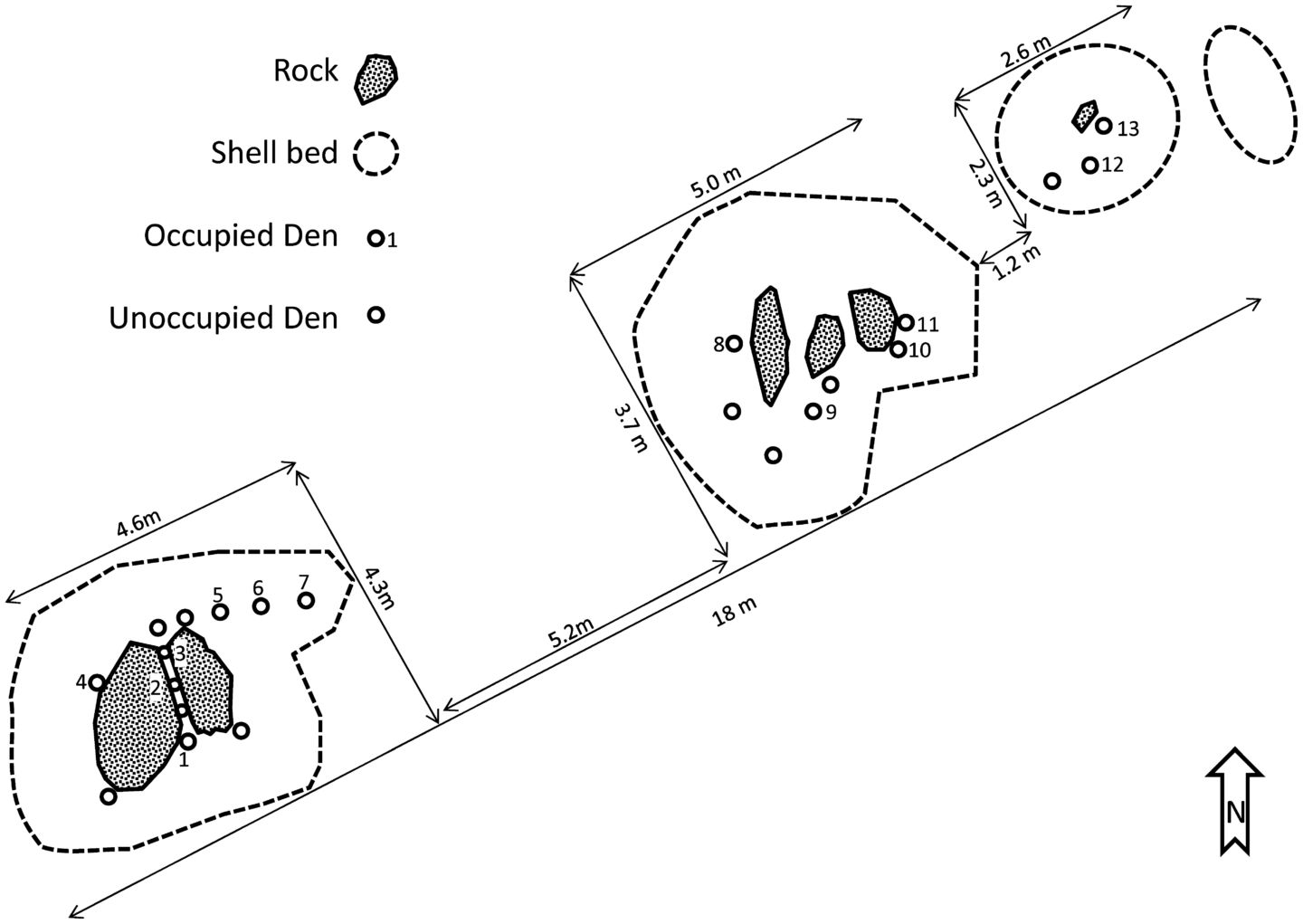Why octopuses are building small “cities†off the coast of AustraliaDivers found octopuses building structures out of shells, socializing with neighbors.ANNALEE NEWITZ - 9/27/2017, 3:53 PM
https://arstechnica.com/science/2017/09/why-octopuses-are-building-small-cities-off-the-coast-of-australia/ A map of Octlantis, the second settlement of gloomy octopuses found off the coast of Australia. About 10 to 15 octopuses live here, in mounds of shells that have been constructed over generations. Scheel, et. al.
A map of Octlantis, the second settlement of gloomy octopuses found off the coast of Australia. About 10 to 15 octopuses live here, in mounds of shells that have been constructed over generations. Scheel, et. al.The first time that
divers discovered a "city" of octopuses off the coast of Australia, it seemed like a fluke. Octopuses are notoriously solitary animals. Divers found a small group of them in 2009 living together in burrows built around a piece of discarded metal, and they called it "Octopolis." At the time, scientists believed it was a rarity, perhaps caused by human meddling in the environment. But, in 2016, divers found another community of octopuses living in dens built from discarded shells. And this time there was no hunk of metal that had disturbed the natural environment. Researchers now suspect octopuses have been building group habitats for a long time.
Alaska Pacific University marine biologist David Scheel and his colleagues described the new discovery in the journal
Marine and Freshwater Behavior and Physiology. They call it "Octlantis," and, over several months of observation, they determined that the settlement is made up of roughly 10 to 15 gloomy octopuses (yes, that is actually the common name for Octopus tetricus). Octlantis is hardly a metropolis, though—it's more like a tiny village of dens clustered around rocks, built up over several generations. These octopuses only live for about three years, so each generation is relatively short. But they leave behind mounds of discarded shells from their prey, as well as junk they've scavenged, like beer bottles and lead fishing lures. Over the years, octopuses pushed these mounds against the rocks, burrowed inside, and created dens next to each other.
Using video footage from divers and camera traps, the scientists were able to observe the social behavior of city slicker octopuses. They saw at least three pairs of neighbors mate, and there were also a few near-miss "attempted" matings. Mating must have been particularly strange for the octopuses in close quarters, because their reproductive systems are optimized for long-distance fertilization between the solitary animals. Typically, octopuses mate when the male shoots a package of sperm called a spermatophore at the female through the water. The barbed package burrows into her skin and releases the sperm. No touching is required.
[...]